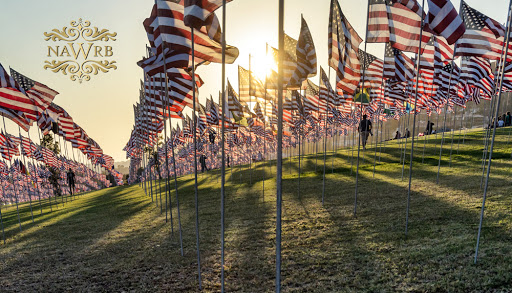Today marks the anniversary of the September 11 terrorist attacks that took the lives of nearly 3,000 Americans in 2001. Eighteen years on from this national tragedy, we take the time to remember those who lost their lives on that fateful day.
On December 18, 2001, Congress named September 11 ‘Patriot Day’ to commemorate the anniversary of the attacks. Eight years later, on April 21, 2009, Congress requested that the observance of September 11 be annually recognized as ‘National Day of Service and Remembrance.’
Lasting Effects Today
In 2018, FBI Director Christopher Wray, along with the special master of the 9/11 Victims Compensation Fund held a forum at the 9/11 Memorial and Museum with a goal of encouraging federal law enforcement officers still suffering from health problems relating to the attack to take advantage of available resources.
In the years since that horrible morning, the country has tried to move forward in part by encouraging those who were exposed to the toxic air released from the debris to access services and benefits that could help them cope or prolong their lives.
The 9.11 World Trade Center Health Program was created to provide care and monitor not only first responders but people who lived and worked nearby Ground Zero. The program estimates over 400,000 people were either exposed to toxic contaminants or sustained Ground Zero-related injuries or emotional trauma after the initial attacks. Making up the program’s top ten post-9/11 illnesses are Chronic Rhinosinusitis, cancer, PTSD, Chronic Obstructive Pulmonary Disease, Depression, and anxiety.
The program was created after the signing of the James Zadroga 9/11 Health and Compensation Act of 2010, named for an NYPD officer who died of a respiratory disease in 2006. It divides those eligible for care into four categories: FDNY Responder, General Responder, workers or volunteers who provided support; NYC Survivor, a person present in the disaster area as a result of their work, residence, school or daycare; and finally, Pentagon/Shanksville, PA Responders who were involved in the other attacks that occurred that day.
Last year, city firefighters added 18 more names to the 182 already etched on the memorial wall at their headquarters. The names represent firefighters who have died from post-9/11 related illnesses, underlining the fact that years later, the impact is personal and devastating.
9/11 Memorials
In New York, thousands are expected to congregate at Ground Zero, and across the country, events and commemorations are taking place in remembrance of 9/11. The National September 11 Memorial & Museum, which opened in 2014, is the main national gathering site. This morning, the memorial and museum hosted its annual commemoration ceremony for family members of the victims of the 2001 and 1993 attacks.
Other memorials will take place in other areas of New York; Washington, D.C.; Shanksville, PA; Atlanta, GA; Honolulu, HI; Memphis, TN; Milwaukee, WI; San Diego, CA; Seattle, WA; Tampa, Florida; and more cities across the United States. See a list of events here.

 Login
Login

